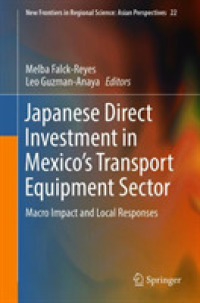Full Description
Ali Mazrui address the great language debate in Africa.
Tackling the contentious question of African languages versus European languages, this study argues that the dominance of the incoming languages is due to two factors: originally the societies were not expansionist enough, and later the peoples of Africa failed to be nationalist enough.
ALI A. MAZRUI was Director of the Institute of Global Cultural Studies at the State University of New York at Binghamton and Senior Scholar in African Studies atCornell University
North America: Chicago U Press; Uganda: Fountain Publishers; Kenya: EAEP
Contents
Part 1 Global Africa: language an drace in the black experience - an African perspective; African languages in the African-American experience; linguistic Eurocentrism and African counterpenetration - Ali Mazuri and the global frontiers of language; language and the quest for liberation - the legacy of Fritz Fanon. Part 2 Continental Africa: language in a multicultural context - the African experience; language planning and gender planning; language policy and the foundations of democracy - an African perspective; language policy and the rule of law in "Anglophone Africa". Part 3 Regional case studies: dominant languages in a plural society - English and Kiswahili in post-colonial East Africa; a tale of two Englishes - the imperial language in post-colonial Kenya and Uganda; roots of Kiswahili - colonialism, nationalism, and the oral heritage; the secularization of an Afro-Islamic language. Concluson: the linguistic balance sheet - post-Cold War, post-apartheid and beyond structural adjustment.







